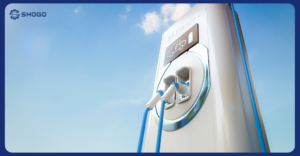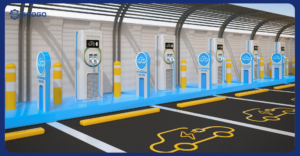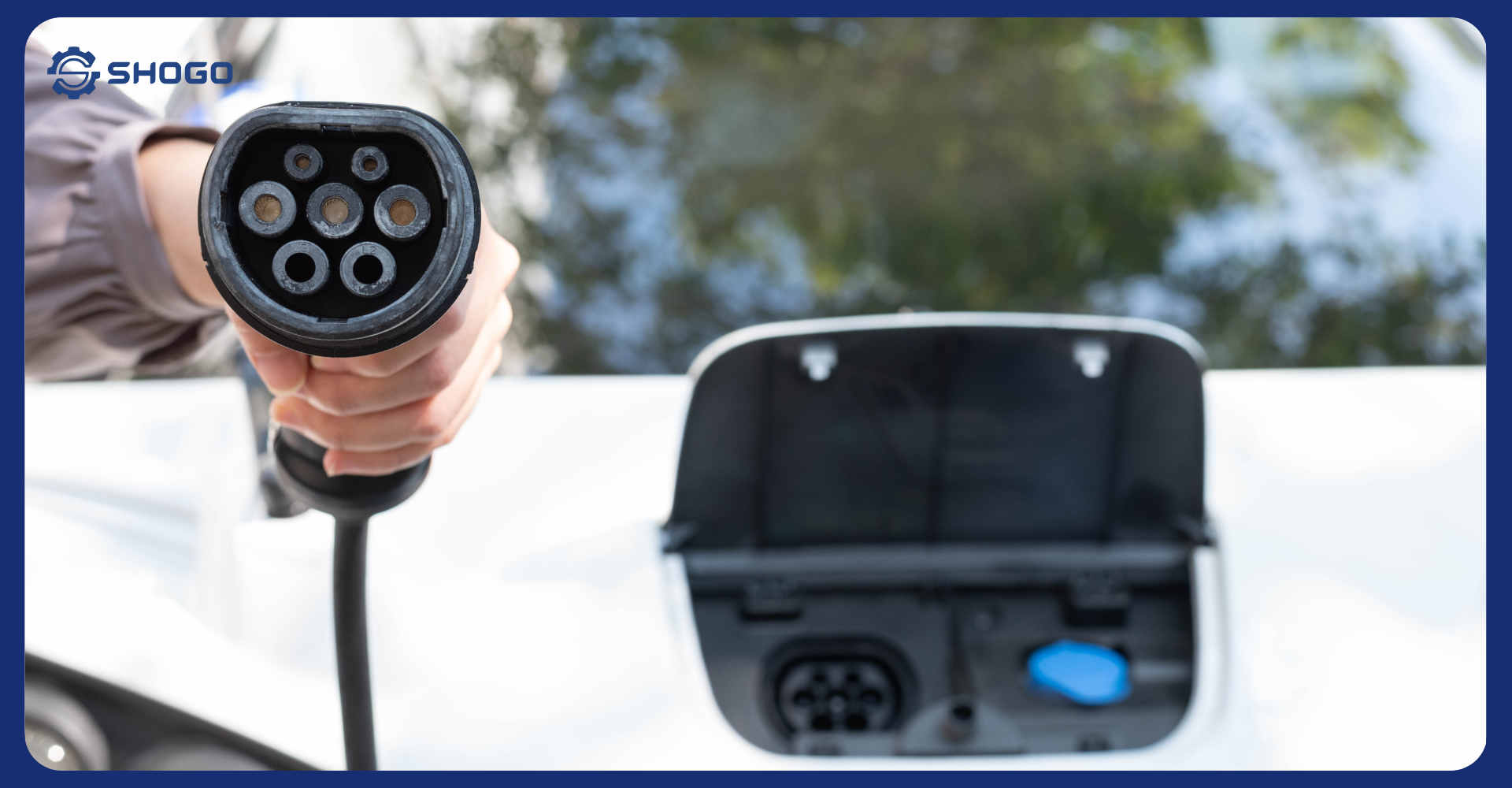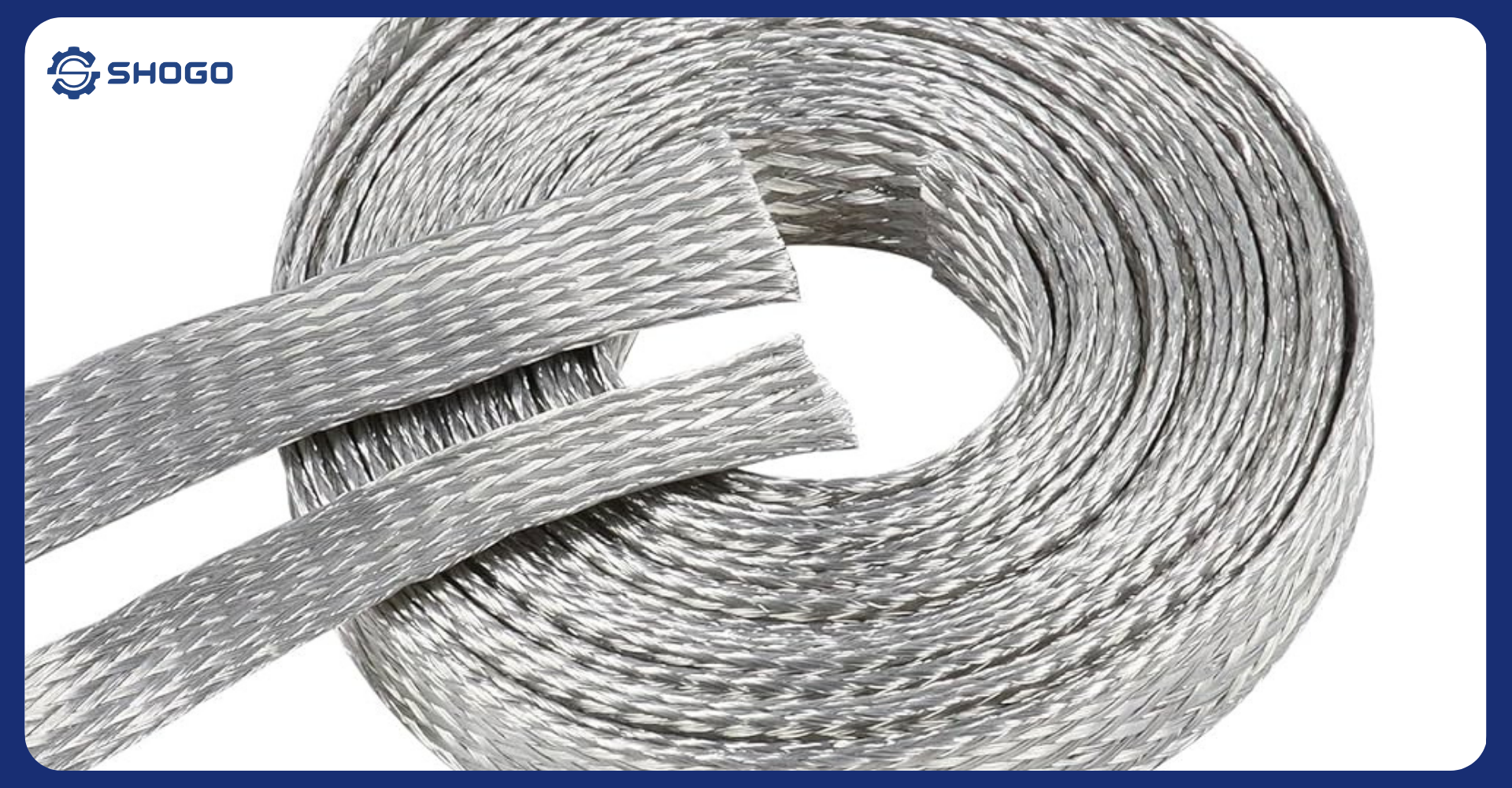
Introduction to EV Charging Station Cables
As the electric vehicle (EV) industry continues to grow rapidly worldwide, the infrastructure for charging stations plays a crucial role. One indispensable component of this system is the specialized electrical cable. Unlike conventional power cables, EV charging cables must offer high heat resistance, stable conductivity, and exceptional durability.

Why Do EV Charging Stations Require Specialized Cables?
EV charging systems—especially fast DC chargers—often operate at high power levels ranging from 22kW to 350kW. Therefore, the cables used must meet strict technical requirements:
- High heat resistance for continuous current flow
- Flame retardancy to ensure safety
- Resistance to oil, UV radiation, and harsh weather conditions
- Electromagnetic compatibility (EMC) for signal integrity
- Long lifespan, easy installation and maintenance
Key Features of HVCABLE’s EV Charging Cables
1. High-Quality Materials
- Refined copper conductors for excellent electrical conductivity
- XLPE or PVC insulation with high thermal resistance
- LSZH or PVC sheathing for flame, water, and UV resistance
2. Diverse Product Lines
| Product Code | Application | Key Advantages |
|---|---|---|
| HVC–PowerPro | Power supply from main panel to charging unit | High capacity, XLPE insulation |
| HVC–EVFlex | Internal installation inside charging stations | Flexible, easy to install, flame retardant |
| HVC–ShieldDC | Fast DC charging and signal transmission | EMC shielding, enhanced electrical safety |
Real-World Applications of HVCABLE in EV Infrastructure
- Smart parking systems in major shopping malls
- Public EV charging stations
- Battery factories, EV and charger manufacturing facilities

How to Choose the Right Cable for EV Charging Stations
When selecting cables for EV charging systems, consider the following:
- Charger output power: choose an appropriate cable cross-section (16mm² – 95mm²)
- Installation location: indoor or outdoor (UV resistance, waterproofing, etc.)
- Transmission distance: calculate voltage drop
- Charging type: AC or DC, slow or fast charging
Conclusion
Choosing the right cable is a critical step in building safe, efficient, and future-ready EV charging infrastructure. With years of experience and a strong commitment to quality, SHOGO provides specialized cable solutions tailored to the demanding requirements of EV charging systems—from residential units to large-scale commercial stations.


